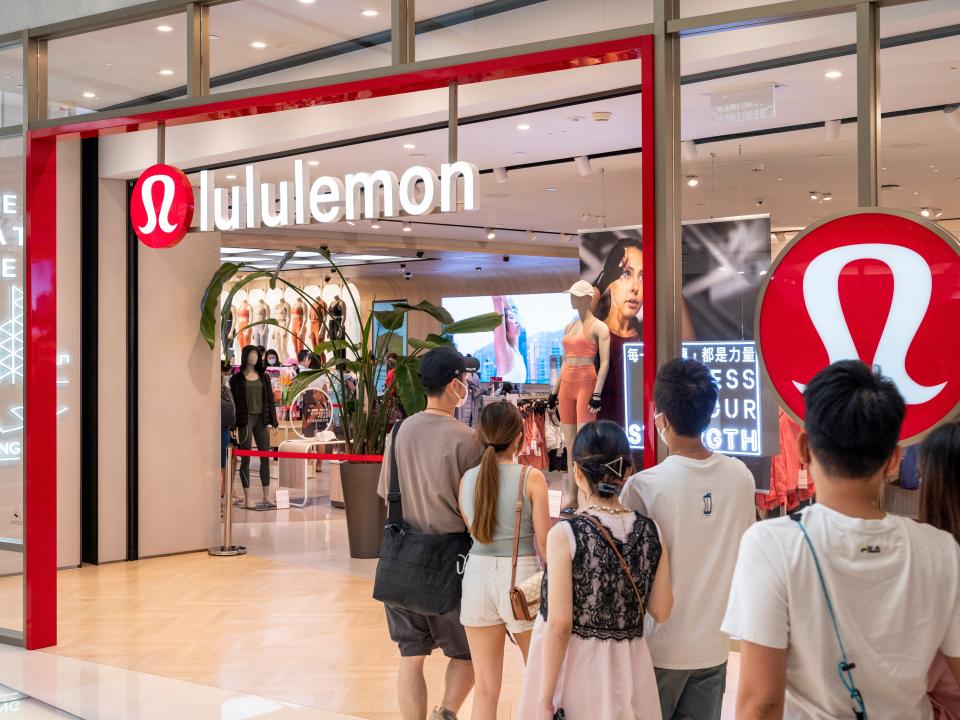Nike and Lululemon are obliterating the competition when it comes to drawing customers to stores

Foot traffic at Nike and Lululemon stores increased each of the last three months
During the same time period, foot traffic at sporting goods apparel stores decreased.
Analytics firm Placer.ai said "experiential" designs seem to be working for Nike and Lululemon.
Foot traffic at Lululemon and Nike stores increased in February, despite an overall decrease in foot traffic at sporting goods apparel stores. It's the latest sign of the popularity of each brand and the strength of its "experiential" brick-and-mortar approach.
Traffic increased more than 11% at Lululemon stores and nearly 6% at Nike stores while traffic at sporting goods apparel stores decreased by nearly 8%, according to a new report from Placer.ai, a retail analytics firm.
The sporting goods apparel category for Placer.ai includes chains such as Dick's Sporting Goods and Hibbett.
It was the third consecutive month that traffic at Nike and Lululemon stores increased while overall traffic at sporting goods apparel stores decreased, a signal that the way each brand uses experiences to get customers through the front door is working.
Lululemon stores host yoga classes. Nike's experimented with several new store concepts in recent years, including limited-edition apparel sold only in-store and products specific to the community or location of the store.
"In an age when brick-and-mortar stores must compete with the ease of online shopping, a unique experience can keep customers coming through the door," Placer.ai wrote.
Placer.ai did not provide a detailed breakdown of the stores included in its sporting goods apparel category.
Nike and Lululemon are both focused on growing direct sales.
At an investor day last year, Lululemon executives listed the company's direct-to-consumer focus as a core strength. The company primarily sells through its stores and its online channels. Only 11% of Lululemon sales come from outside channels.
"Our DTC model provides a significant competitive advantage," the company said in an analyst presentation.
Nike announced its Consumer Direct Acceleration, a business plan focused on direct, digital sales, in 2020. It built on 2017's Consumer Direct Offense. As part of that focus, Nike's been building out its store fleet. Since 2017, Nike's direct business has grown 106%, while its wholesale business has only grown 11%.
While foot traffic is increasing at Nike and Lululemon stores, in recent months several brands, including Nike, Adidas, and Allbirds, have signaled renewed interest in wholesale channels.
Nike reports quarterly earnings next Tuesday. Lululemon reports quarterly earnings on March 28.
Read the original article on Business Insider

 Yahoo News
Yahoo News 